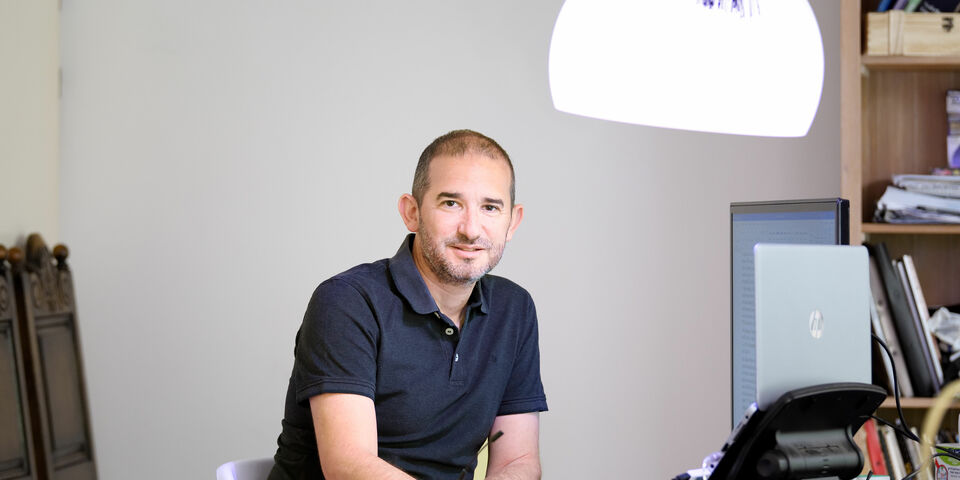A USEful lesson
I have been teaching for almost thirty years by now. But not until I was forced to share the virtual stage with my colleague and friend, Dr. Bert Sadowski from the faculty of IE&IS, I realized how much more fun teaching can be when you engage in a dialogue. I have also learned that if you want to expose students to topics they would not normally choose to study, like USE topics, you need to join forces across the divide between natural and social sciences.
I was not looking forward to teaching in Q1 of 2020. In the early summer I was still holding on to the dream I will be able to give my lectures live on campus with a small but motivated group of students as an audience. Quickly it became clear that this was not the direction the university was taking and I was waiting anxiously to start my teaching online as a long monologue in front of a dark MS Teams screen.
And so, we convened online to kick off our physics USE course on computation and communications on the 31st of August. The course was traditionally built on the premises that different lectures are given by different teachers, all with their own expertise.
However, as this year we were all behind a laptop at home, Dr. Sadowski (Bert) stayed around a bit longer. As I was trying to explain Shannon and Hartley’s theorem on information capacity, something different happened. I started getting comments and questions not from the students, but from Bert. He was asking me all sorts of questions and making observations based on his own expertise which were new to me and probably also new to the students.
As we continued to discuss the value of information (in terms of €) and the implication of rolling out 5G networks, also the students decided to contribute to the discussion. Time flew by and after concluding what would normally be a devastating four hours online lecture I was buzzing with excitement.
I have since repeated this experience for all the lectures in the course (every time either inviting someone from the social sciences department to join me or joining Bert in his lectures on economics). I am still waiting for the student’s feedback on the course, but one thing is certain, I had the time of my life teaching this course online this year. And I have also learned a lot from my colleagues in the faculty of IE&IS by listening to them and engaging in a dialogue.
Actually, it is no wonder that this approach felt so good. I guess already the Greeks knew that the best way to really study something is through a dialogue. And while I do not compare myself in any way to the great philosophers of ancient Greece, I can certainly say that I have learned a very USEful lesson. If you want to make applied physics and electrical engineering student interested in economics, sociology and social sciences in general (we also spent sometime this year talking about philosophy :-o ), you need to introduce it by allowing an exact scientist and a social scientist to have a dialogue.
And who knows, maybe the AP and EE students will like it and actually learn to appreciate the importance of USE.


Discussion